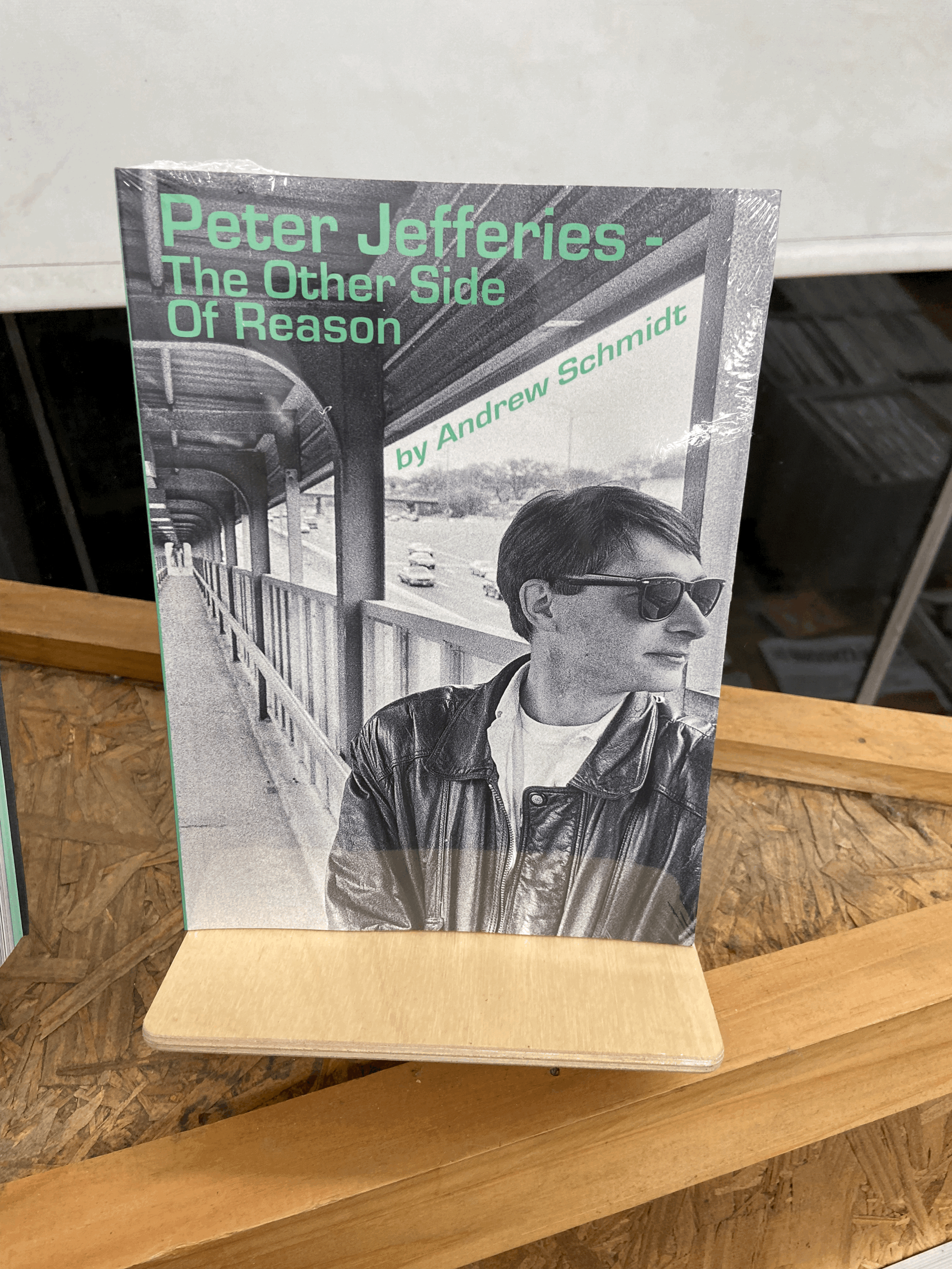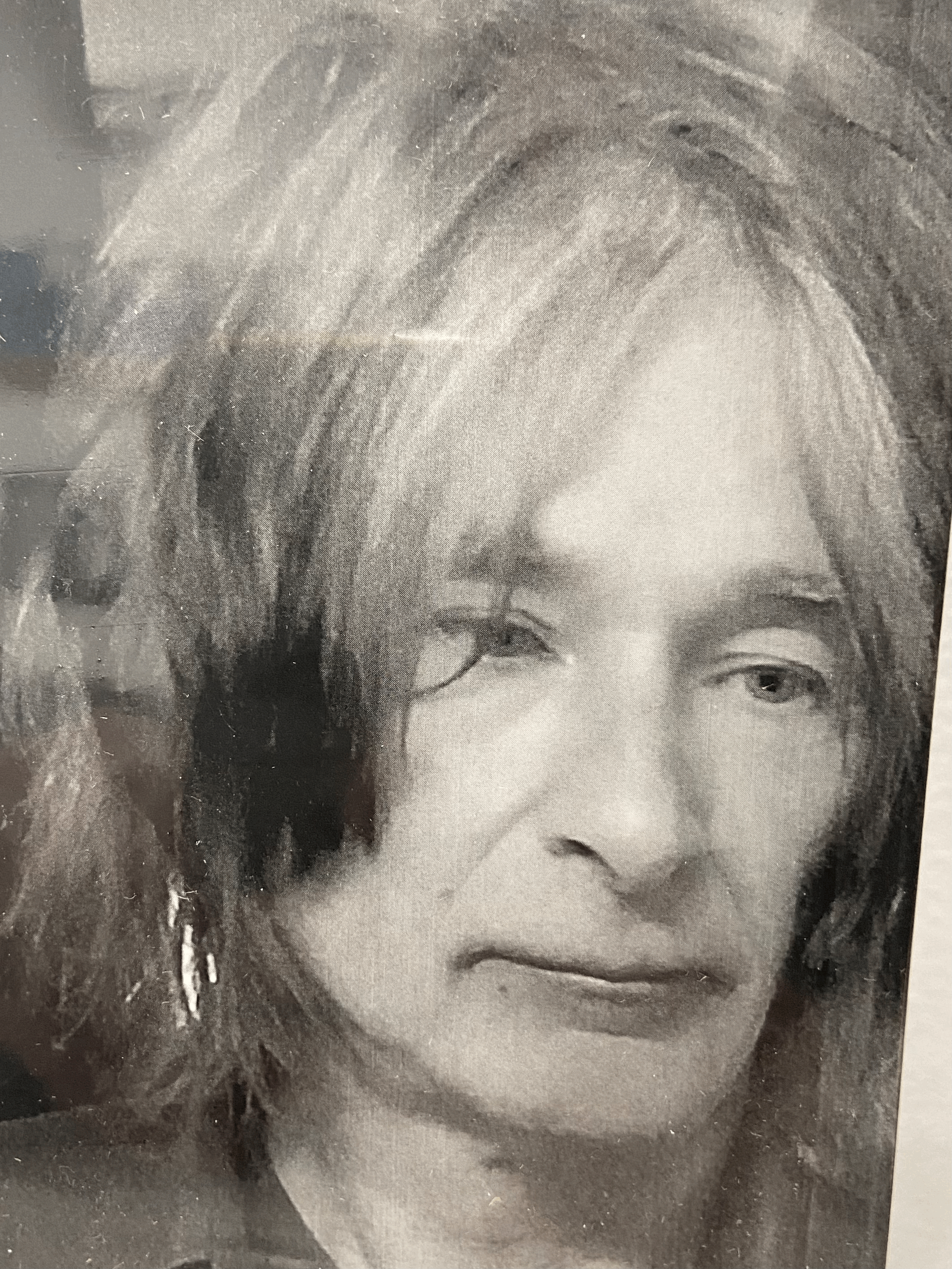 Image 1 of 2
Image 1 of 2

 Image 2 of 2
Image 2 of 2



Peter Jefferies: The Other Side of Reason by Andrew Schmidt (Hozac Books)
From the one-sheet and props to Hozac on this publication. We’ve been waiting decades for this:
“Hozac Books is proud to present another foundational brick in the pantheon of New Zealand underground music with Peter Jefferies – The Other Side of Reason, a career-spanning biography by music historian Andrew Schmidt of Audioculture.nz.
Covering Jefferies’ earliest musical projects during the first wave punk heyday such as Dull Emma, and Pink Noise on into Nocturnal Projections, This Kind of Punishment, Plagal Grind, Cyclops, and much more in striking detail, the author leaves no stone unturned and weaves Jefferies life story into a gripping saga of innovation, isolation, and redemption.
Alongside is the story of the evolving Flying Nun imprint as well as the creation of Xpressway which served to fill a sorely needed gap in handling & distributing more of the marginal New Zealand lo-fi recordings to the masses.
The Other Side of Reason truly shows the endless power of creative perseverance and the intensities that come therein when dealing with that immovable thrust in the core of your being and how to channel that into something that lasts for the ages.
For ten long years between 2002 and 2012, Peter Jefferies, the New Zealand indie composer and musician didn’t answer the phone or his email, when old and new fans and friends called. He didn’t want to know about the brilliant run of solo albums and live shows that sparked a major cult following in the United States. Then step by step, note by note, year by year, Jefferies emerged from his Taranaki abode on the edge of home city, New Plymouth, to see nearly every major work he’d meticulously assembled in the post-punk and alternative rock era between 1980 and 2002 in New Zealand and the US reissued and universally praised. The cultural footprint from his busy and fiercely creative years with Nocturnal Projections, This Kind of Punishment, Xpressway Records, Plagal Grind, Cyclops, Two Foot Flame and solo was that deep.
Returning sporadically to the live stage in New Zealand, new music soon flowed, adding to one of the small South Pacific nation’s most potent collections of words and sound.
Written with Peter’s cooperation, Peter Jefferies / The Other Side of Reason, reveals the stark beauty, brutal honesty and endearing humanity of his best work, as music historian, Andrew Schmidt, traces the Stratford-born musician’s life through New Zealand’s punk and post-punk hot spots in Auckland, New Plymouth, and Dunedin in the 1980s and early 1990s, and then, when the world came calling, Chicago, Vancouver, and Austin, Texas, with tours through Europe and Australia from the mid to late 1990s into the new millennium.”
From the one-sheet and props to Hozac on this publication. We’ve been waiting decades for this:
“Hozac Books is proud to present another foundational brick in the pantheon of New Zealand underground music with Peter Jefferies – The Other Side of Reason, a career-spanning biography by music historian Andrew Schmidt of Audioculture.nz.
Covering Jefferies’ earliest musical projects during the first wave punk heyday such as Dull Emma, and Pink Noise on into Nocturnal Projections, This Kind of Punishment, Plagal Grind, Cyclops, and much more in striking detail, the author leaves no stone unturned and weaves Jefferies life story into a gripping saga of innovation, isolation, and redemption.
Alongside is the story of the evolving Flying Nun imprint as well as the creation of Xpressway which served to fill a sorely needed gap in handling & distributing more of the marginal New Zealand lo-fi recordings to the masses.
The Other Side of Reason truly shows the endless power of creative perseverance and the intensities that come therein when dealing with that immovable thrust in the core of your being and how to channel that into something that lasts for the ages.
For ten long years between 2002 and 2012, Peter Jefferies, the New Zealand indie composer and musician didn’t answer the phone or his email, when old and new fans and friends called. He didn’t want to know about the brilliant run of solo albums and live shows that sparked a major cult following in the United States. Then step by step, note by note, year by year, Jefferies emerged from his Taranaki abode on the edge of home city, New Plymouth, to see nearly every major work he’d meticulously assembled in the post-punk and alternative rock era between 1980 and 2002 in New Zealand and the US reissued and universally praised. The cultural footprint from his busy and fiercely creative years with Nocturnal Projections, This Kind of Punishment, Xpressway Records, Plagal Grind, Cyclops, Two Foot Flame and solo was that deep.
Returning sporadically to the live stage in New Zealand, new music soon flowed, adding to one of the small South Pacific nation’s most potent collections of words and sound.
Written with Peter’s cooperation, Peter Jefferies / The Other Side of Reason, reveals the stark beauty, brutal honesty and endearing humanity of his best work, as music historian, Andrew Schmidt, traces the Stratford-born musician’s life through New Zealand’s punk and post-punk hot spots in Auckland, New Plymouth, and Dunedin in the 1980s and early 1990s, and then, when the world came calling, Chicago, Vancouver, and Austin, Texas, with tours through Europe and Australia from the mid to late 1990s into the new millennium.”
From the one-sheet and props to Hozac on this publication. We’ve been waiting decades for this:
“Hozac Books is proud to present another foundational brick in the pantheon of New Zealand underground music with Peter Jefferies – The Other Side of Reason, a career-spanning biography by music historian Andrew Schmidt of Audioculture.nz.
Covering Jefferies’ earliest musical projects during the first wave punk heyday such as Dull Emma, and Pink Noise on into Nocturnal Projections, This Kind of Punishment, Plagal Grind, Cyclops, and much more in striking detail, the author leaves no stone unturned and weaves Jefferies life story into a gripping saga of innovation, isolation, and redemption.
Alongside is the story of the evolving Flying Nun imprint as well as the creation of Xpressway which served to fill a sorely needed gap in handling & distributing more of the marginal New Zealand lo-fi recordings to the masses.
The Other Side of Reason truly shows the endless power of creative perseverance and the intensities that come therein when dealing with that immovable thrust in the core of your being and how to channel that into something that lasts for the ages.
For ten long years between 2002 and 2012, Peter Jefferies, the New Zealand indie composer and musician didn’t answer the phone or his email, when old and new fans and friends called. He didn’t want to know about the brilliant run of solo albums and live shows that sparked a major cult following in the United States. Then step by step, note by note, year by year, Jefferies emerged from his Taranaki abode on the edge of home city, New Plymouth, to see nearly every major work he’d meticulously assembled in the post-punk and alternative rock era between 1980 and 2002 in New Zealand and the US reissued and universally praised. The cultural footprint from his busy and fiercely creative years with Nocturnal Projections, This Kind of Punishment, Xpressway Records, Plagal Grind, Cyclops, Two Foot Flame and solo was that deep.
Returning sporadically to the live stage in New Zealand, new music soon flowed, adding to one of the small South Pacific nation’s most potent collections of words and sound.
Written with Peter’s cooperation, Peter Jefferies / The Other Side of Reason, reveals the stark beauty, brutal honesty and endearing humanity of his best work, as music historian, Andrew Schmidt, traces the Stratford-born musician’s life through New Zealand’s punk and post-punk hot spots in Auckland, New Plymouth, and Dunedin in the 1980s and early 1990s, and then, when the world came calling, Chicago, Vancouver, and Austin, Texas, with tours through Europe and Australia from the mid to late 1990s into the new millennium.”
